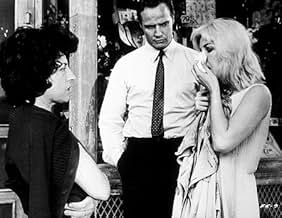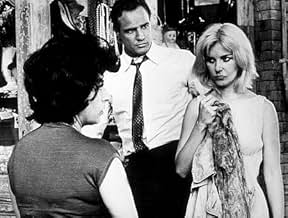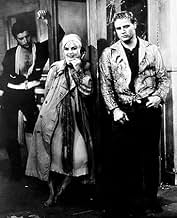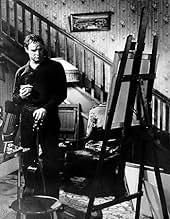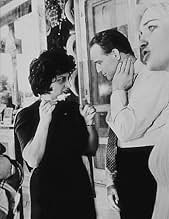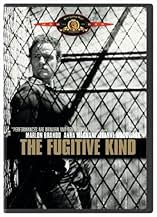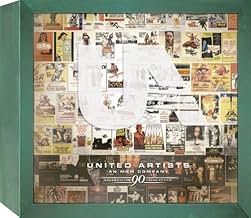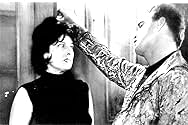Valentine "Pelle di serpente" Xavier, un vagabondo incline ai guai che cerca di rigare dritto, giunge in una piccola città del Mississippi cercando una vita semplice ma rimanendo imbrigliato... Leggi tuttoValentine "Pelle di serpente" Xavier, un vagabondo incline ai guai che cerca di rigare dritto, giunge in una piccola città del Mississippi cercando una vita semplice ma rimanendo imbrigliato in una relazione con una donna problematica.Valentine "Pelle di serpente" Xavier, un vagabondo incline ai guai che cerca di rigare dritto, giunge in una piccola città del Mississippi cercando una vita semplice ma rimanendo imbrigliato in una relazione con una donna problematica.
- Regia
- Sceneggiatura
- Star
- Premi
- 2 vittorie totali
- Ruby Lightfoot
- (as Spivy)
- Bit Part
- (non citato nei titoli originali)
Recensioni in evidenza
Valentine Xavier (Marlon Brando), also know as Snakeskin because of the snakeskin jacket he wears, gets out of jail in New Orleans and hits the road. His car breaks down in the middle of a rainstorm in a little Mississippi town, so he stops and gets a job in a little mercantile store run by Lady Torrance (Anna Magnani). She's lonely and has an older sick husband, Jabe (Victor Jory), who doesn't trust her or the good-looking clerk she just hired, especially when she fixes up a little bedroom for Xavier in the back of the store.
Lady Torrance gets some competition from a young rich woman, Carol (Joanne Woodward), who is often drunk and remembers Xavier from New Orleans. She's too over the top to be real competition for Lady Torrence, however.
After Lady Torrence learns her husband was among an earlier group of vigilantes that burned down her father's vineyards and home with her father inside, she is determined to open a "confectionary" attached to the mercantile store, that is designed like a vineyard. She wants Jabe to see before she allows him to die.
However, there is a conflagration at the end that unhappily resolves the plot.
This is Tennessee Williams with his grimiest southern town filled with malfunctioning human relationships. There are only dim flares of hope throughout, only to be extinguished by the end. Marlon Brando, as one reviewer put it, is "an astonishing physical specimen, a statuesque hunk with the intellectual ennui of a philosopher, who moves with a panther-like ease" and is "the misfit we all want to be." Anna Magnani is the earthy older woman who is finally trying to grasp some joy from life. They are a potent combination, though I sometimes find Tennessee Williams' words to be overwrought.
The first time I watched this movie (in 2008) I didn't much like it, probably because I wasn't familiar with Williams' stagey, melodramatic style of writing. However, after just viewing Williams' "The Night of the Iguana" (1964) and really appreciating it, I had a taste for more and so gave "The Fugitive Kind" a second chance. I'm glad I did because, this time, I was able to discern its highlights and got a lot more out of it.
Marlon was in the midst of my favorite period of his career while filming this movie. Arguably his greatest films, "The Young Lions" (1958), "One-Eyed Jacks" (1961) and "Mutiny on the Bounty" (1962), were all shot during this time. While "The Fugitive Kind" is easily the least of these it's worth checking out for a number of reasons, as long as you're in the mood for a talky adult melodrama. Like "The Night of the Iguana," this is a brooding rumination on the nature of existence. As such, there are numerous treasures to glean from the seemingly interminable dialogues. The movie's overlong and could've been tightened up, but the interspersed riches hidden within make it worth staying with, but you have to be a seasoned adult to appreciate it or, at least, mature for your years.
Woodward's beatnik character is interesting as she's basically a hippie before hippies existed. Although her character is histrionic and somewhat annoying, some of her reflections are poignant, like in the interesting cemetery scene with Snakeskin. Emory Richardson is almost fascinating as Carol's silent black friend in a racist community. Some of their platonic imagery together is unexpected and intriguing for a film shot in 1959.
Brando was 35 during filming and became the first actor to make $1 million for a single film (although Elizabeth Taylor earlier signed a $1 million contract for "Cleopatra," that movie wasn't released until 1963). Magnani was 51 and hot to sleep with the star, but Marlon didn't find her attractive which, needless to say, negatively affected the shoot. This is surprising because some of their scenes together are quite good. I incidentally had an Italian neighbor who passed away six weeks ago who was strikingly reminiscent of Magnani's character, both looks-wise and temperament-wise. So I know firsthand that people like her exist.
The film runs 119 minutes and was shot in Milton, New York.
GRADE: B
This is one of those great movies that slips its way into that big gap between the great Hollywood Golden Age to the great New Hollywood of the late 1960s. An awful lot of films from the period between (1955-65) are weak or even downright bad, big budgets and all. The Hollywood gems in that time are usually a little gut wrenching, and many are based on plays, or push political issues (I'm thinking of "The Apartment" and "The Manchurian Candidate"). The famous directors coming to their own during time include Elia Kazan and Robert Wise, and of course Sidney Lumet, who directed this one.
This is all working class, plainspeaking, emotive material. Right from the get-go with leading man Marlon Brando doing a long take as he stands before a judge, we are filled with heart-wrenching stuff, people who want to be something and don't know how, or people with big hearts that are broken or dirty. The cast, beyond Brando, is terrific: Joanne Woodward as a young floozy with a sharp sense of independence, Maureen Stapleton as a simple and faith filled wife of the sheriff, and Anna Magnani, intense and troubled but superior in her own out of place way.
There are powerful displays of white narrow-mindedness (call it bigotry, but it is largely aimed at just anyone they don't like) that don't quite fall into clichés, there is love that shouldn't be and that never is, there is old world morality and inbred local gossipy immorality. Things are bound for collision even by twenty minutes in, and there are innuendoes and hidden histories waiting to blossom.
Lumet has a knack for the serious, with his 1957 breakthrough film "12 Angry Men" a template for his career. As lively and even crazy as this movie is, it's also probing deeply into human woe and maladjustment (often deliberate). The core of the writing belongs to Tennessee Williams, who of course is all about inner troubles and outward misunderstood or mistaken actions. There is nothing superficial here, not in the acting, the filming, or the scenes (set in the South but filmed near Saratoga Springs, New York). And if the wet, dark nights scenes and interiors with people quarreling and fighting aren't enough to suck you in, the story, about wanting to live, nothing more, is beautiful and important. All four of the main characters are deeply good people, and all flawed in small but debilitating ways.
Which should sound familiar. As over the top as it sometimes seems, you'll identify with the position some of the people end up in. Brando is temperamental but patient and with a profound sense of justice. Woodward is a free spirit misunderstood (and punished) by the uptight and hypocritical society around her. The themes are frank for 1960, including an implication of a male so manly and irresistible the women want him (and get him) even when it's completely wrong. And when it's right. The sexuality, partly pumped up by the writing of the openly gay playwright (Williams), is all over Brando's face and in his scenes. And this is his movie.
High high drama, but from within. And explosive. Don't miss it.
Lo sapevi?
- QuizMarlon Brando described Anna Magnani as being equally fiery and passionate off screen. He claimed she made a pass at him in a hotel before filming began.
- BlooperAt the cemetery, Xavier returns to the car and turns on its headlights. A much brighter studio light comes on a beat too late to further illuminate the right side of the frame.
- Citazioni
Lady Torrance: Tell me some more about your self-control.
Valentine Xavier: Well, they say that a woman can burn a man down, you know? But I can burn a woman down. I'm saying that I could. I'm not saying I would.
Lady Torrance: What's the matter? Have they tired you out?
Valentine Xavier: No, I'm not tired.
I più visti
- How long is The Fugitive Kind?Powered by Alexa
Dettagli
- Data di uscita
- Paese di origine
- Lingua
- Celebre anche come
- El hombre de la piel de víbora
- Luoghi delle riprese
- Azienda produttrice
- Vedi altri crediti dell’azienda su IMDbPro
Botteghino
- Budget
- 2.000.000 USD (previsto)
- Tempo di esecuzione1 ora 59 minuti
- Colore
- Proporzioni
- 1.66 : 1


